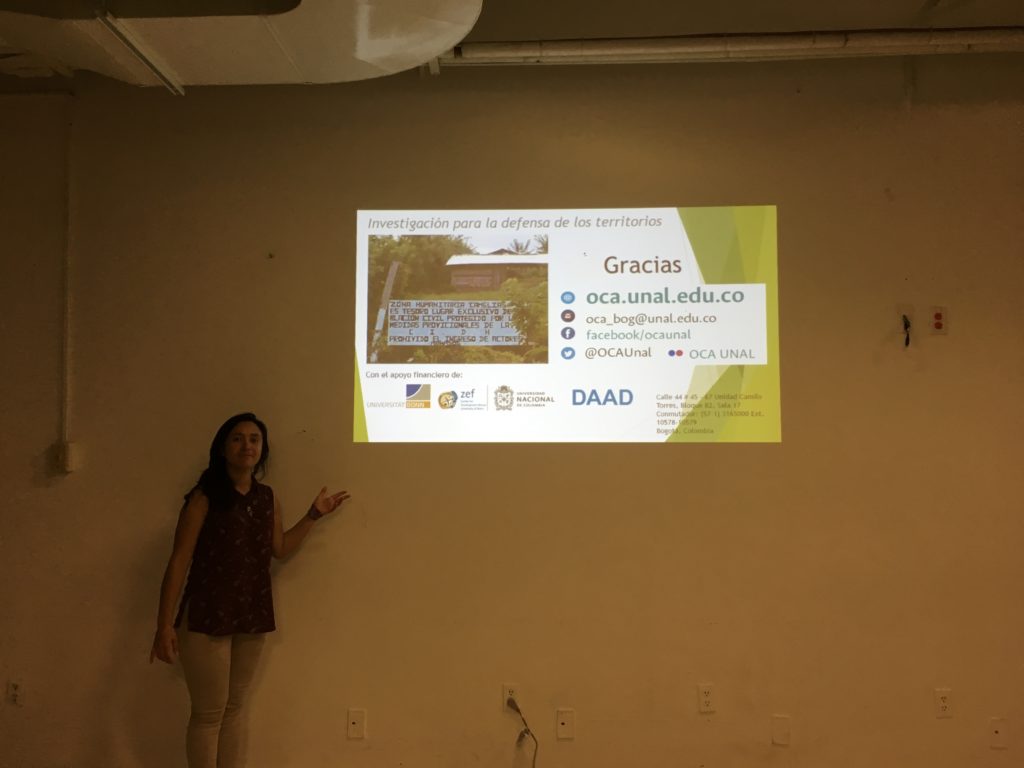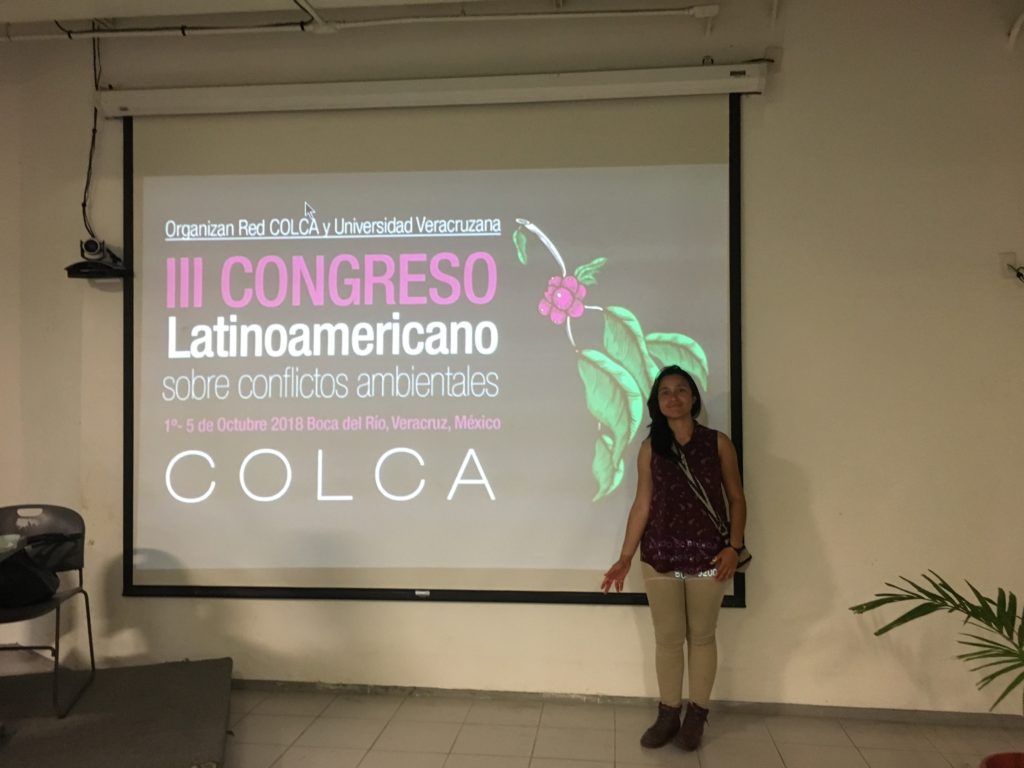by Karem Acero
Presented at the III Latin American Congress on Environmental Conflicts (COLCA-2018), city of Boca del Río (Veracruz, México), October 1 to 5, 2018


Abstract:
The Génesis and Cacarica military operations (1997) by the Colombian National Army (in association with paramilitary structures to fight the FARC-EP guerrilla groups) led to the forced displacement of hundreds of people. After this event, oil palm crops appeared in Curvaradó and Jiguamiandó, traditional territories of afro-Colombian communities. Companies such as Urapalma grabbed the land at low cost by using coercive methods. This trend was followed by other eight companies that illegally acquired traditional lands with high ecological value. The Inter-American Commission on Human Rights and the Colombian Constitutional Court took a stance due to this case and ordered the restitution of land to the Community Councils of Curvaradó and Jiguamiandó, whose members face life threats.
The objective of this work was analyzing, through the methodology proposed by the Observatory of Environmental Conflicts (OCA), the role of the different actors involved in the conflict and ecosystem impacts of oil palm crops in the Community Councils of Curvaradó and Jiguamiandó. Results show that the struggle by displaced populations begins with the attempts to return to their lands, which ended up being covered by oil palm crops and guarded by paramilitary groups. Therefore, the population was grouped into eight Humanitarian Zones whose objective was protecting the life of afro-Colombian people. Some peasants, in order to exercise their sovereignty over their territory, cultivate subsistence crops in the lands invaded by oil palm. This monocrop fragmented the rain forest of the Darien zone, transformed ecosystems and caused biodiversity loss. Crops contributing to agro-biodiversity (such as rice, yucca, plantain and corn) were replaced by oil palm. The companies have changed the course of rivers to irrigate these crops, thus transforming the landscape. Forced displacement, murder of social leaders, eviction and dispossession of afro-Colombian lands were some of the consequences of this process. Additionally, the culture setting was harmed and the population was divided into two: those who struggle to recover collective lands, and those who defend oil palm companies because of the job opportunities they provide.
